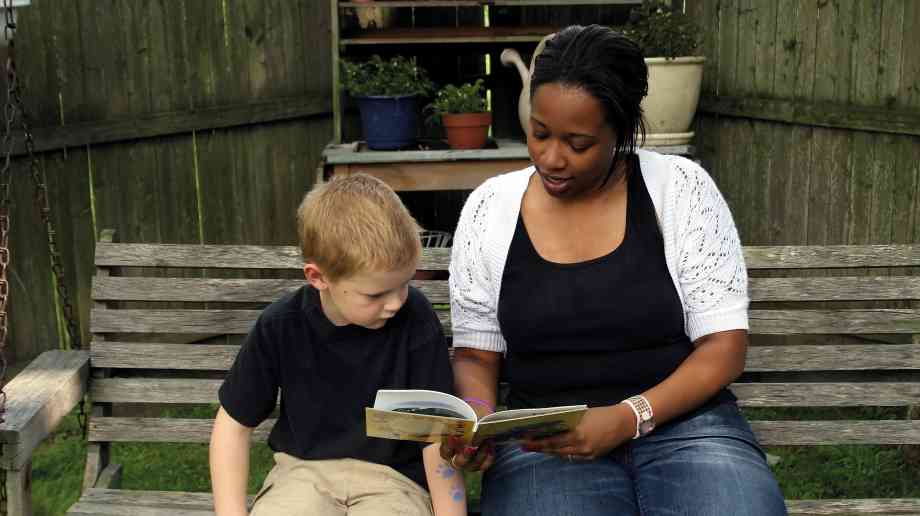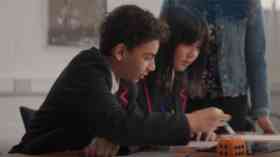
Equipping pupils with the literacy skills they need
In England, one child in three from a disadvantaged background leaves primary school unable to read well. Jonathan Douglas of The National Literacy Trust looks at the link between low literacy and poverty, how to narrow the attainment gap and equip young people with literacy fit for employment and life.
Literacy is at the heart of education. Reading, writing, spoken language and vocabulary are essential to learning in all subjects and without these skills, pupils are unable to access the wider curriculum. For example, if a pupil has a good grasp of geography but cannot understand how to present their knowledge in a piece of written homework, they will not do well in the subject. In science and maths classes, which may not be immediately associated with literacy, pupils need to read and analyse texts and have a working knowledge of specialist words.
The National Curriculum emphasises how good literacy skills provide ‘access to the whole curriculum’ and a ‘foundation for success in all subjects.’ The Department for Education insists that every school must have a rigorous whole-school literacy policy which is implemented systematically across the curriculum, that all teachers view themselves as teachers of literacy and language regardless of their subject specialism and that all schools must do everything possible to ensure pupils can read.
Supporting literacy teaching
As an increased emphasis is placed on embedding literacy across all subjects, a National Literacy Trust survey of over 2,300 teaching professionals, Teachers and Literacy: Their Perceptions, Understanding, Confidence and Awareness, found that teachers want to champion literacy but need more support to meet the literacy requirements of the new National Curriculum. The survey found that while almost all the teachers (95.3 per cent) say it is their job to teach and promote literacy, just two in five (42.4 per cent) say they have particular strategies for teaching literacy that they feel work well and almost a quarter (23.9 per cent) do not feel confident teaching the literacy set out in the new National Curriculum.
The research also found that only half of participants said that they get helpful continued professional development in literacy. This needs to be addressed, as a 2013 report by Ofsted indicated that secondary schools where teachers of all subjects received literacy training and taught it in class saw an improvement in results across the curriculum.
The National Literacy Trust’s new Language and Literacy Within the Curriculum reports that continued professional development training helps teachers to develop their skills for teaching literacy in their subject by drawing on expertise from a wide range of schools. The training develops subject leaders’ literacy pedagogy and equips literacy leaders with tools for the audit, evaluation, monitoring and implementation of literacy strategies in their school.
A culture of enjoyment
Reading for enjoyment is key to encouraging pupils to adopt more positive attitudes towards literacy as well as improving their attainment. The National Literacy Trust’s research, Children’s and Young People’s Reading in 2014, found that children who enjoy reading ‘very much’ are three times more likely to read above the level expected for their age, compared with their peers who do not enjoy reading at all. The more a child reads, the better their writing is also likely to be, as well as their speaking and listening skills.
Events, competitions, whole-school reading initiatives and book corners can all help to develop a culture of reading for enjoyment - the National Literacy Trust Network offers a wealth of resources and ideas to help teachers to promote reading for pleasure across the school. The challenge for teachers is how to engage their pupils by increasing the demand for reading across their school by helping pupils to find a text that unlocks a whole new world of ideas and viewpoints or one that can help them to explore their own identities, situations and aspirations.
Making reading relevant
One tactic to engage some of the most reluctant readers is to use their interests and influences to make reading relevant to their lives. Evidence consistently shows that boys in particular are at significant risk of underachievement in reading and writing. The National Literacy Trust’s Premier League Reading Stars programme uses the motivational power of football to boost literacy outcomes. The programme builds on evidence that footballers can influence the way young people view reading, particularly among boys and pupils eligible for free school meals. Over ten sessions, pupils are introduced to a range of different reading materials, including newspaper reports and website pages, and learn skills like skimming and scanning. Evaluation shows that three out of four participants make six months reading progress or more.
Being literate reaches far beyond classrooms – reading, writing, speaking and listening skills will have a huge impact on students’ future lives. According to the Organisation for Economic Cooperation and Development (OECD), ‘adults with good literacy skills (the equivalent of a good English Language GCSE or better) are much more likely to be in work than those with lower levels of literacy: 83 per cent compared to 55 per cent’. The same report shows that literacy skills also have a strong impact on wider social outcomes: ‘adults in England with low literacy levels have twice the odds of reporting low levels of trust as their peers with high literacy, and three times the odds of reporting poor health’.
Without language and literacy skills, a young person’s life chances are severely diminished; their employability, health, confidence and happiness are all compromised.
Teachers have a vital role in equipping pupils with the literacy they need to fulfil their potential.
Further information
www.literacytrust.org.uk
Latest News
09/01/2026 - 10:13
The measure, added to the Children’s Wellbeing and Schools Bill, delivers on the commitment made in the government’s manifesto to bring multi academy trusts into the inspection system.
08/01/2026 - 10:30
The government is launching a new app allowing students to view their GCSE results on their phones for the first time from this summer.
08/01/2026 - 09:45
Education Business LIVE has announced that Professor Samantha Twiselton OBE of Sheffield Hallam University will speak at the event in March 2026, delivering two thought-provoking sessions focused on initial teacher training and SEND provision.
07/01/2026 - 10:10
Solve for Tomorrow is a free, curriculum-linked programme which is mapped to Gatsby Benchmarks 4, 5, and 6, helping teachers embed careers education without adding to workload.
06/01/2026 - 10:24
London's universal free school meals programme has not led to improvements in pupil attainment during its first year, but has eased financial pressure and reduced stress for families.







